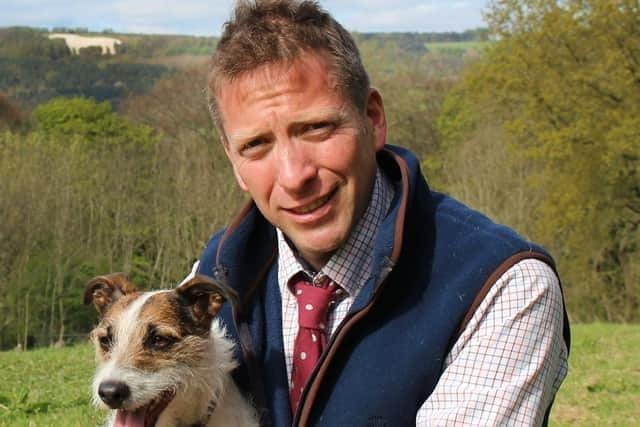The Yorkshire Vet: Julian Norton on managing the melancholic moments
The ups and downs of clinical life are perennial. Cases don’t always go to plan, especially in animals where bed rest or strict post-surgery rehabilitation regimes cannot be as easily enforced as they would in a cooperative human being. Dogs can lick their wounds, causing neatly placed sutures to become infected and sore, or chase after next door’s cat when they should be resting; and they often do their best to avoid swallowing their medicine.
Sometimes, it’s hard to make a proper diagnosis, because of a host of practical limitations; but we must do the best we can, using our bank of experience and the support of colleagues. The cocker spaniel this afternoon, with a bleeding nose, a bleeding wart and bleeding gums was an example. I’d need a blood test to confirm a diagnosis of Immune Mediated Thrombocytopaenia, but I was confident I’d got it right and a traumatised and tearful owner left relieved that the diagnosis was prompt and the condition treatable.
Advertisement
Hide AdAdvertisement
Hide AdCharlie, the thirteen-year old Golden Retriever came in yesterday. I removed an aggressive anal gland tumour six months ago. At the time, it was touch and go whether we should undertake the surgery. Had the mass been much bigger, it would have been impossible to remove so, it really was Charlie’s last chance. But, he is doing remarkably well. The tumour has not reappeared and his visit to the practice was for a different, much milder condition.


And Amore, who has an invasive and inoperable tumour, was in earlier this week. Miraculously, the metronomic chemotherapy regime has shrunk the mass, so it is almost impossible to detect. And her tail, like Charlie’s, still wags. Two utterly positive outcomes, both against the odds. Most cases we see are not as dramatic as these and improve, get better, resolve, with simple treatment. But it only takes one or two cases that don’t follow the expected course to batter your clinical confidence. I should have developed thicker skin by now. And I should have learnt that most things work out ok in the end, because or in spite of our intervention. But remembering that is sometimes easier said than done.
I’ve been fortunate to have had innumerable occasions in which my confidence has been buoyed over the last few years. Confidence is something everyone needs to nurture, from the newly qualified veterinary nurse to the established doyen. Without it, everything is hard.
As I pondered whether it was time to hand over the reins to the next generation, with more energy and a modern perspective, a moment of levity improved my day: the work Whatsapp chat pinged into life. One of our new vets asked a question: “What’s the ops list like on Monday? I have a vulture coming in for X-rays and blood tests.” There was a flurry of different emojis as everyone responded and I couldn’t help but laugh and added a reply: “The vultures are circling…”. Given my mood, it seemed apt.
Advertisement
Hide AdAdvertisement
Hide AdMy week was improving, as the cloud lifted, the prospect of an evening on my bike became more real and the prognosis of my irksome cases improved. But the words of Clive James, as ever, crept into my head: “The melancholy will always come.” The big question was whether the vultures would get here first.